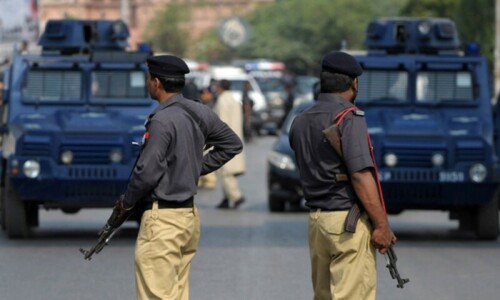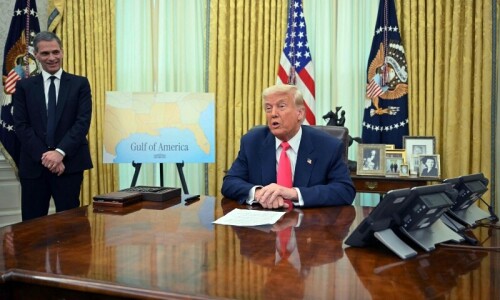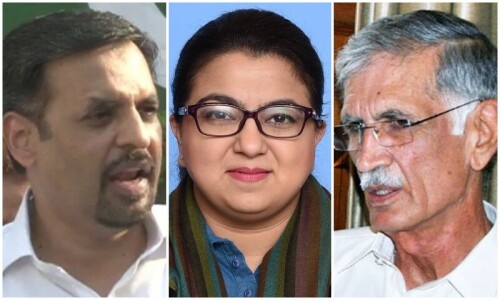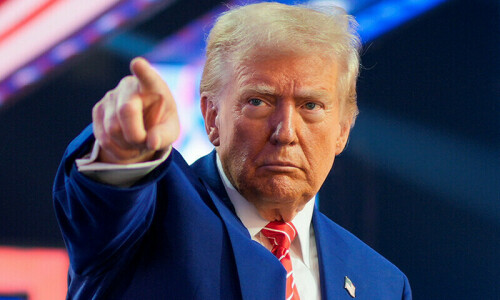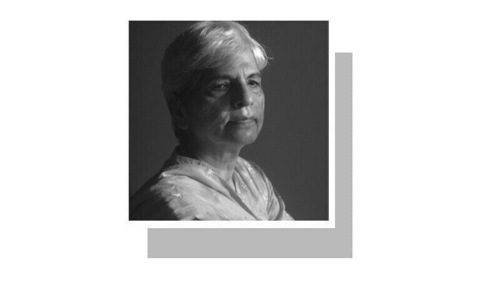ISLAMABAD: The Supreme Court (SC) on Monday suspended the election tribunal’s Sept 27 decision to unseat Qasim Khan Suri — a PTI member from Balochistan and deputy speaker of the National Assembly.
The suspension by a three-judge SC bench also includes the Election Commission of Pakistan’s (ECP) de-notification of Mr Suri as a member of the lower house from constituency NA-265 Quetta-II, Balochistan. The bench, headed by Justice Umar Ata Bandial, also restrained the ECP from issuing an election schedule for the constituency and issued notices to the respondents in the petition.
Soon after the order, the PTI minister for parliamentary affairs, Ali Mohammad Khan, told the media that the court’s decision implies that Mr Suri has been restored as not only a member of parliament but also deputy speaker, till the conclusion of the appeal.
On Sept 27, the election tribunal of Quetta had declared Mr Suri’s election win void and had ordered re-election in the constituency NA-265 Quetta-II. The election result was challenged by his opponent Nawabzada Lashkari Raisani, who alleged rigging.
Court restrains ECP from issuing a schedule for by-poll
The leader of the house in the Senate, Shibli Faraz, and Mr Suri were present on the SC premises when the decision was made.
During the hearing, Justice Ijaz-ul-Ahsan — pointing to senior counsel Naeem Bokhari, representing Mr Suri — observed that the initially unseated person had been accused of rigging during polling day, adding that 19 witnesses had alleged that they were expelled from the polling stations so that rigging could be achieved.
However, the counsel argued that his client secured 25, 973 votes out of a total of 118,153, whereas his opponent Mir Lashkari Raisani was able to bag only 20,089 votes; thus, his client got 5,585 more votes than his opponent.
In his appeal, Mr Suri questioned the jurisdiction of the ECP in unseating him, saying that it had not been constituted properly since the five-member commission had been short of two. The petition contended that the ECP did not have the constitutional composition to de-notify a returned candidate who was currently the deputy speaker of the lower house. It further maintained that the appellant hails from a low-income middle class family, whereas his opponent Mr Raisani was the brother of the former chief minister of Balochistan, and was thus immensely rich, well-connected and extremely influential; it would thus be inconceivable that the appellant could have connived with the polling staff on duty in constituency NA-265 Quetta II for his success, as held by the tribunal. The conclusion by the election tribunal that there was a ‘meagre difference’ in the number of votes between the rival candidates is contrary to the record, since a difference of 5,585 votes is not meagre, argued the appeal, reflecting bias on part of the tribunal.
Moreover, said the appeal, there is no detection of huge quantity of bogus votes by the National Database and Registration Authority (Nadra), in addition to no contravention of the Election Act, 2017, nor was any corrupt or illegal practice proved during the proceedings before the tribunal. Thus, the conclusion by the tribunal was completely unsustainable in fact or law.
The petition emphasised that any failure on part of Nadra or the commission could not remotely be attributed to the appellant, adding that the tribunal had, in its verdict, failed to apply or even understand Nadra’s conclusion, which suggested that out of 49,042 fingerprints found of sufficient quality by the Automated Fingerprint Identification System (AFIS), no fingerprints failed authentication.
Published in Dawn, October 8th, 2019

















